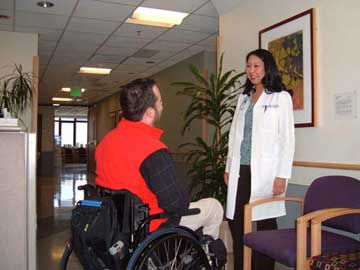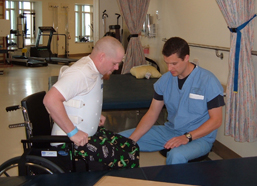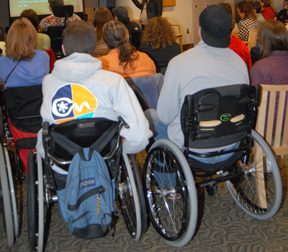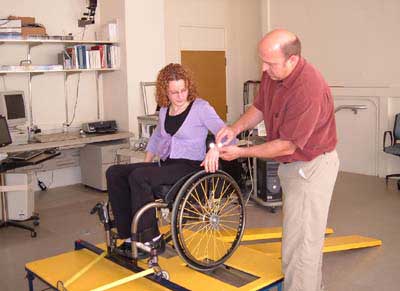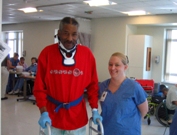2016 Spinal Cord Injury Wellness Summit
Saturday, May 21, 2016 from 12:30 p.m. to 5:00 p.m.
Summit Topic: Spotlight on Technology
The fifth annual SCI Wellness Summit welcomed 160 visitors on Saturday, May 21 to learn about the wonderful world of assistive technology (AT) for making life a little better for individuals with spinal cord injuries. Workshops, demonstrations and presentations covered everything from quick do-it-yourself AT solutions to the latest in emerging technology, including 3-D printing and robotic devices. The Summit took place at the UW's South Campus Center.
This annual half-day educational symposium is presented every year by the Northwest Regional SCI System and the SCI Transitions and Wellness Program in the University of Washington's Department of Rehabilitation Medicine, and attracts consumers, caregivers, clinicians and rehab students from around Puget Sound. Thanks to our underwriters, this event was free to the public.
Schedule of sessions and presenters:
12:00 noon |
Doors Open |
|
12:30 – |
Room 316 |
|
12:45 – 1:30 pm |
Room 316 Technology is affecting the lives of people with disabilities in surprising and revolutionary ways. Technologies developed for mainstream use and gaming, such as touch screen computing and body-tracking motion controllers, have changed computer access for individuals with disabilities. Wearable devices help monitor health needs, store data and deliver feedback. “Sixth Sense Technology” allows users to interact with devices and information via gestures. Telepresence robotics, Smart Home technology, speech controlled devices, and 3D printing are all new technologies that are changing independence and function for people with disabilities. The speakers will delve into these and other technologies as well as some of their ethical implications. CEU Credits: .75 contact hours. |
|
1:35 – 2:15 pm repeated at 2:50–3:30 pm |
|
|
4:00 – 4:45 pm |
Assistive Technology (AT) has the potential to vastly improve functional capabilities, independence and quality of life. Yet there are numerous hurdles to obtaining assistive devices in the U.S. today. Even once those hurdles are overcome, the rates of acceptance of AT are very low and rates of device abandonment are high. Anat Caspi, PhD, Director of the Taskar Center for Accessible Technology (TCAT), will explain why individuals with disabilities face so many barriers to getting the AT they need and want. She will then describe ways they can become involved in creating and modifying their own AT through the Do-It-Yourself Assistive Technology (DIY-AT) movement, rather than being forced to rely on "off-the-shelf" products. Finally, she will identify places in Seattle and beyond where people with disabilities can participate in DIY-AT. CEU Credits: .75 contact hours. |
|
4:45 – 4:50 pm |
Room 316 |
|
2016 SCI Wellness Summit Underwriters
We are grateful to the following companies for supporting the 2016 SCI Wellness Summit. Company representatives will have exhibits at the Summit:
- Dependable Medical Equipment
- Restorative Therapies
- Experea Healthcare
- Coloplast
- Invacare Corporation
- Kersey Mobility
-
Hollister, Inc.
- Bellevue Healthcare
- Wellspect Healthcare
- Brewis Group
- Vertical Therapy, LLC
- Geneva Woods
- Permobil
- NuMotion
Questions? Contact Cynthia Salzman at nwrscis@uw.edu or

